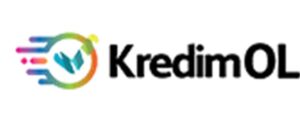Financing the future
Established in 2011, to provide financial services products to consumers looking to purchase a car from Abdul Latif Jameel’s Toyota and Lexus distributorships in Turkey, ALJ Finans has grown to become a significant player in the Turkish consumer finance sector . . . and one of the fastest growing.
 It has also earned a robust reputation as a leader in innovation in automotive financing, with revolutionary services, and some Turkish consumer finance market ‘firsts’, such as robotic process automation, decision support automation, customer e-care, KredimOL mobile app and e-contract, plus a number of prestigious industry awards.
It has also earned a robust reputation as a leader in innovation in automotive financing, with revolutionary services, and some Turkish consumer finance market ‘firsts’, such as robotic process automation, decision support automation, customer e-care, KredimOL mobile app and e-contract, plus a number of prestigious industry awards.
Looking to continue this track record of success and drive the development of ALJ Finans over its next period of growth is Chief Executive, Betügül Toker. We spoke to Betügül about the current dynamics in the Turkish consumer finance market and her ambitious plans to lead ALJ Finans into the future.
When did you join ALJ Finans?
I joined the Abdul Latif Jameel family in September 2021. I am originally a retail banker. I began with QNB Finansbank in 2000, as a management trainee, where I stayed for 8½ years. Then I moved to Akbank, which was number two in Turkey at the time. I was there for four years, but my focus has always been on payments systems in retail or consumer banking. When I first got involved, digital banking was not really a discreet area in Turkey. It was simply seen as an alternative delivery channel, rather than a separate business line. I developed a focus on product expansion, data analytics, CRM, third-party collaborations – all areas where I could see that digital technology had enormous potential.
I was approached by Bank Audi Group, one of the biggest banking groups in the region, which was launching in Turkey as Odeabank, to head up the retail banking division. It was a chance to build up that business from scratch. I jumped at it and stayed for five years, again with a big focus on the technology side of things. I was then approached by Aktif Bank, the biggest investment bank in Turkey, who asked me to help them establish their digital banking business, including payment systems, cards, the fintech environment in general. It was from Aktif Bank that I came to ALJ Finans.
What attracted you to the role at ALJ Finans?
I knew of ALJ Finans and had become increasingly aware of them during my time at Aktif Bank. I knew Abdul Latif Jameel was a major global player and, although ALJ Finans is relatively small on the consumer finance side in Turkey, I could see they had big plans and were making a lot of investment to grow and expand the business, particularly on the digital side. I saw there was a great opportunity to combine my leadership experience and my expertise in digital banking to help ALJ Finans achieve its bold ambitions.
How is the Turkish consumer finance market changing?
Consumer finance and banking are split into two different sectors. The banking sector is very well established and well regulated, with around 40 million active customers. Consumer finance is a newer sector, but it has expanded rapidly and there is still a lot of room for further growth, particularly on the digital and fintech side. It is very competitive. Fintechs are focusing first on building their businesses. Once they have a built a solid base, they are in a better position to apply for other financial licenses, like a consumer finance licence or payments licence. It used to be the other way round – get the licence first, build the business and then obtain additional licenses.
In general, the big banks dominate in areas like general purpose loans and mortgages, but consumer finance providers have a strong presence in some markets, like automotive finance, where they account for around 35% of lending. There is scope for this to be much higher, which is what I’m aiming for at ALJ Finans.
What are the prospects for the consumer finance sector over the next three years?
I predict that the sector will grow significantly in the next three years as it enters new financing areas – cumulative growth of more than 50% over the next three years would not be a surprise. Increasing vehicle prices will increase the demand for credit. A possible decrease in interest rates will push demand in a similar direction. We expect to see growth in non-automotive financing solutions for products such as consumer electronics and household goods, as well as an increase in the share of financing companies in total loan volumes. These healthy dynamics are likely to see more players coming into the market, especially on the non-automotive financing side, so competition is likely to get tougher.
Do you expect the consumer finance sector in Turkey to continue to be dominated by automotive finance?
 For the time being, yes. But within five years I think the balance will start to change, with growth in general purpose loans.
For the time being, yes. But within five years I think the balance will start to change, with growth in general purpose loans.
Automotive finance is an easy option – every vehicle has a plate value. If something goes wrong, there is a nice big asset to sell. It’s not as clear cut in other areas of finance. I think that is changing though, and at ALJ Finans we aim to be part of that change. I expect to see finance becoming more common across a wider range of assets, from mobile phones to furniture and white goods. That’s one of the areas we are focusing on.
What is the fintech scene like in Turkey?
 Turkey has a very dynamic fintech scene. There are about 250 fintech companies here. Over 50 of them have e-money or payment services licenses. There is one decacorn (valued over US$ 10 bn), four unicorns, one IPO, plus 127 gaming start-ups that have attracted over US$ 680 million in venture capital.
Turkey has a very dynamic fintech scene. There are about 250 fintech companies here. Over 50 of them have e-money or payment services licenses. There is one decacorn (valued over US$ 10 bn), four unicorns, one IPO, plus 127 gaming start-ups that have attracted over US$ 680 million in venture capital.

That’s 250 fintechs, many of which already have or will be applying for e-money licenses. So, what’s the strategy? E-money includes payments and cards, so it is a great way to get into customer’s wallets, or rather, onto their smart phones. Once you’ve established yourself in that space, you can apply for more licenses, expand into other areas and you can attract more investment. At some point they will need to decide whether to become fully fledged digital banks, something which the Turkish government is very supportive of. It is a very exciting, fast-moving market.
What does the dynamism of the fintech market mean for providers like ALJ Finans?
I think it confirms that we are on the right path. You have to think digitally, and you have to put customers at the very center of your digital universe. If you don’t invest in your customer experience, you will have zero value.
This is what we are already doing at ALJ Finans. We put our customers at the center, and we are building the technology around them to meet their needs. We are updating our technology system, our lending platform, to enable us to create digital-first solutions and we are building up our internal technology team to enhance our innovation capabilities in future.
What are your plans for ALJ Finans over the next few years?
This year, 2022 will be a year of growth for us. We ended 2021, with a 64% increase in loans extended compared to the previous year. Our market share grew from 3.5% levels at the end of 2019 to 5% at the end of 2021.
Our goal here is to gain at least 2 more points in 2022. In 2021, we increased the volume of customers by 15%. This year, we want to increase this number by 25% and we expect our loan portfolio to grow by more than 50%.
At the moment, ALJ Finans is largely an automotive finance business. In three years, that will no longer be the case. We will be providing a digital consumer finance platform that connects consumers to finance solutions across a wide range of sectors, including automotive, through one ‘super app’. To make this work, we will need to attract more consumers onto our platform. We’ll be focusing on this over the next few years, building partnerships and using Big Data and AI to put intelligent systems in place to attract and retain consumers within our finance eco-system.
Our aim is to be the best digital finance company in Turkey. Today, we already provide end-to-end applications, and with instant approval, credit can be used at the relevant dealer. Our goal now is to rewrite these processes and completely re-architect the application. We aim to launch this innovation in September 2022. We’re aiming for 1 in 4 transactions to come from digital next year.
How do you expect the big players to respond to the changing market dynamic?
The big banks are already repositioning themselves in this space. They are moving away from being seen only as ‘banks’ and are trying to establish their own platforms to position themselves as providers of a much wider range of financial products. Some banks are doing it within their existing brand, others are establishing their own fintech companies. This will continue, and that’s fine, the market is ready for these kinds of changes.

With the worst of the pandemic hopefully behind us, what are your expectations for 2022?
This year, we anticipate significant growth in the consumer finance sector in Turkey, driven both by the inflationary environment and increased activity in the automotive vehicle market. The emergence of new COVID-19 variants may continue to create some uncertainties from time to time, but we predict that the effects of the pandemic will decrease somewhat in 2022. Starting from the middle of the year, we expect that global inflation concerns will decrease, and we will begin to take steps towards normalization.
My priority for ALJ Finans is also growth. Growth in terms of customer numbers and in terms of our investment into the customer experience. We could continue as we are and still be a very successful business, but our ambitions are much bigger than that.
That means investing in technology, data, analytics, AI…every aspect of our digital platform. That will be the focus until the end of 2023. My other priority is to obtain an e-money license. We are currently a financial services business, but it isn’t enough if we want to achieve our growth ambitions. An e-money license will enable us to provide things like money transfer, debit cards, payments, consumer credit. It will give us a much bigger space in the customer’s wallet, and much more opportunity to achieve our strategic objectives.





 1x
1x

 Added to press kit
Added to press kit


